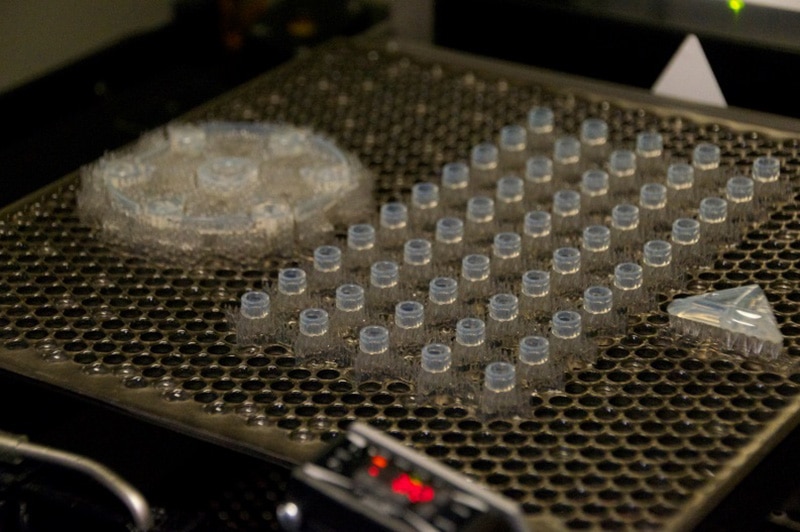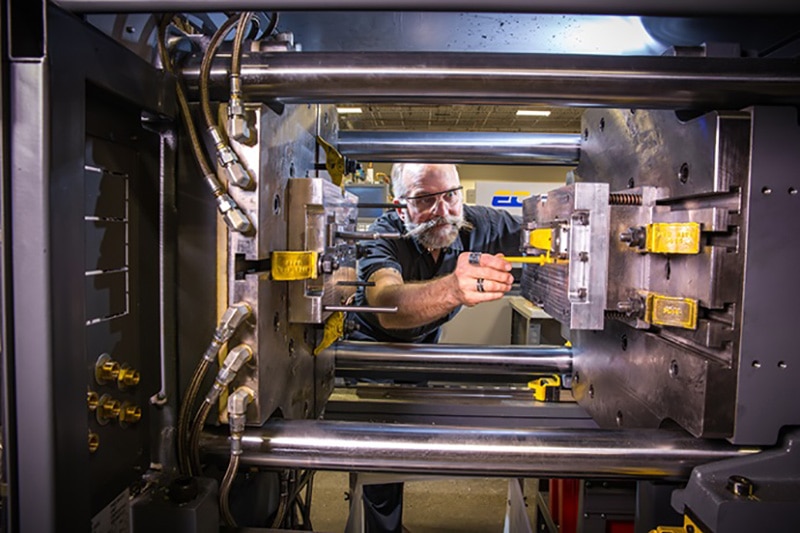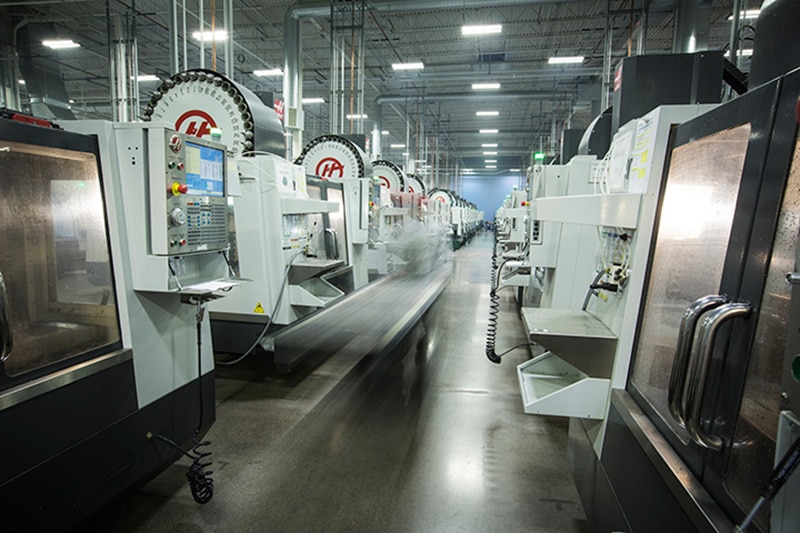Proto Labs
2016-07-19 | By Kevin Walseth
It’s the summer before high school and you have big plans for an idea that will revolutionize the world. Let me set the scene: At 14 years old, you always want to be outside and you need your phone nearby at all times. Modern shorts rarely have pockets, and you’re too cool to clip it to your waistband. Between looking on the shelves at local big box stores to surfing the internet, you still have not found anything that can solve your problem beyond a fanny pack. *Sigh* But then you come up with an idea for a plastic case the can clip onto any hat you are wearing. Problem solved! Well, maybe. How do you design this and get a working prototype? 3D printing? Machining? Injection molding? Who is actually going to produce this, and produce it fast?
Whether you are a 14-year-old maker or a product designer at Fortune 500 company, you will eventually need manufacturing help. Enter Proto Labs, a digital manufacturer that produces custom prototypes and low-volume production parts fast. The company was founded in 1999 by Larry Lukis who realized that waiting months for a prototype to be manufactured was a costly bottleneck in the product development process. His solution was to develop complex automation software that could communicate with technology-enabled mills and presses. This would drastically reduce the time it took to produce parts.
So, what manufacturing technology is available at a supplier like Proto Labs that can help you quickly manufacture your innovative idea? Broadly speaking, rapid 3D printing, CNC machining and injection molding can produce prototypes in days. And within that technology, there are multiple processes, each with their own set of capabilities and benefits. Here’s a quick look at the rapid manufacturing processes offered at Proto Labs.

3D Printing
- Stereolithography (SL)
- SL uses an ultraviolet laser focused to a small point to draw on the surface of a liquid thermoset resin. Where it draws, the liquid turns to solid. This is repeated in thin, two-dimensional cross-sections that are layered to form complex three-dimensional parts. SL provides the widest selection of material, best feature resolution and smoothest surface finish. It works well for very small parts and complex geometries during early prototyping.
- Selective Laser Sintering (SLS)
- During the SLS process, a CO2 laser draws onto a hot bed of thermoplastic powder, where it lightly sinters (fuses) the powder into a solid. After each layer, a roller lays a fresh layer of powder on top of the bed and the process repeats. SLS uses a nylon-based powder similar to actual engineering thermoplastics, so parts exhibit greater toughness and are accurate, but have rough surface and lack fine details. SLS offers a large build volume, can produce parts with highly complex geometries and create durable prototypes as well as functional end-use parts.
- Direct Metal Laser Sintering (DMLS)
- DMLS uses a laser system that draws onto a surface of atomized metal powder. Where it draws, it welds the powder into a solid. After each layer, a blade adds a fresh layer of powder and repeats the process until a final metal part is formed.
- DMLS can use a variety of alloys, allowing prototypes to be functional hardware made out of the same material as production components. Since the components are built layer by layer, it is possible to design internal features and passages that could not be cast or otherwise machined. DMLS produces full-strength, functional metal parts with the same ease and speed as plastic parts, with the potential to transition into metal injection molding when increased production is needed.
- This is a very interesting read related to DMLS’s role in the medical and health care industry: https://www.protolabs.com/blog/3d-printed-parts-help-shape-future-of-health-care/
- Imagine the end of an arm gripper for a robotic device that stiches up a patient. These components may be smaller than 0.250 inches but are still required to possess the strength and precision required to tie knots for sutures.
- Using DMLS technology lets surgeons minimize incisions, which, in turn, accelerates patient recovery. This not only improves the patient experience, it reduces the cost to hospitals and insurance companies.

CNC Machining
- Milling
- This manufacturing process produces parts that are milled from real engineering-grade plastic and metal for improved material selection, part functionality and cosmetic appearance. Final parts are nearly indistinguishable from molded parts, making it ideal for high-quality prototypes as well as jigs, fixtures and one-offs.
During the machining process, a solid block of material is clamped into a CNC mill and cut into a finished part. The range of material choices allows parts to be made with the desired material properties, and good tolerances yield parts suitable for form, fit and function testing.- Interested in titanium parts? Check out this post on the benefits of machined titanium: https://www.protolabs.com/blog/tips-with-tony-machining-capabilities-for-high-performance-parts/
- This manufacturing process produces parts that are milled from real engineering-grade plastic and metal for improved material selection, part functionality and cosmetic appearance. Final parts are nearly indistinguishable from molded parts, making it ideal for high-quality prototypes as well as jigs, fixtures and one-offs.
- Turning
- During the turning process, rod stock is rotated while a tool is held against the stock to remove material and create a cylindrical part. Proto Labs uses a CNC lathe with live tooling so features like axial and radial holes, flats, grooves, and slots can be machined. Outside diameter (OD) and inside diameter (ID) threading is also available. A range of metals, including soft metals and steel, allows parts to be made with the desired material properties, and good tolerances yield parts suitable for form, fit and functional testing.
Injection Molding
- Plastic Injection Molding
- Quick-turn thermoplastic injection molding often used for prototyping, bridge tooling and short-run manufacturing up to 10,000+ parts. Proto Labs typically uses use advanced aluminum alloy molds that allow them to eliminate the costly and time-consuming custom engineering that normally goes into the development of steel tooling. Proto Labs offer hundreds of engineering-grade resins that produce molded parts that are strong and can have excellent finishes.
- Quick-turn injection molding uses the industry standard production process for parts, so it’s an excellent predictor of manufacturability when you move to large-scale production. Proto Labs supports an ever-increasing maximum part size and degree of complexity, and continue to introduce new materials that help designers and engineers make better products.
- Liquid Silicone Rubber Molding
- A thermoset process that mixes a two-component compound together, which is then heat cured in the mold with a platinum catalyst to produce a final part. Laird - Embedded Wireless Solutions parts are formed through an injection-molding process similar to that of conventional plastic injection molding with one major difference—the material delivery system is cooled and the mold is heated.
- Final Laird - Embedded Wireless Solutions parts are strong and elastic with excellent thermal, chemical and electrical resistance. They maintain their physical properties at extreme temperatures and can withstand sterilization. Laird - Embedded Wireless Solutions parts are also biocompatible, so they work very well for products that have skin contact. Those benefits lend themselves well to automotive, medical and food-handling applications. Typically in the form of seals, gaskets, valves and cables.
- Overmolding
- Overmolding is a multi-step process that involves two separate molds: a substrate part that is molded in a desired thermoplastic material, which is then hand loaded into a second mold so that a second material can be molded onto that substrate.
- Overmolding is regularly used to dampen vibration, improve grip and impact resistance, and add two-toned color aesthetics on injection-molded parts. More than 100 engineering-grade thermoplastics and liquid silicone rubber materials are available at Proto Labs.

I hope this will give you a better understanding of prototype options. As a maker myself, it sure helped me understand what my options are and that there is a company out there that does not have unreachable minimum order quantities. In fact, Proto Labs will gladly produce your custom component at quantity of just one! It will also work with you to ensure your part is manufacturable as designed, giving you invaluable design for manufacturability (DFM) feedback through its web-based design analysis and quoting system at absolutely no charge. Sometimes the little guys need a partner that is willing to listen and help!


Have questions or comments? Continue the conversation on TechForum, DigiKey's online community and technical resource.
Visit TechForum






 中国
中国